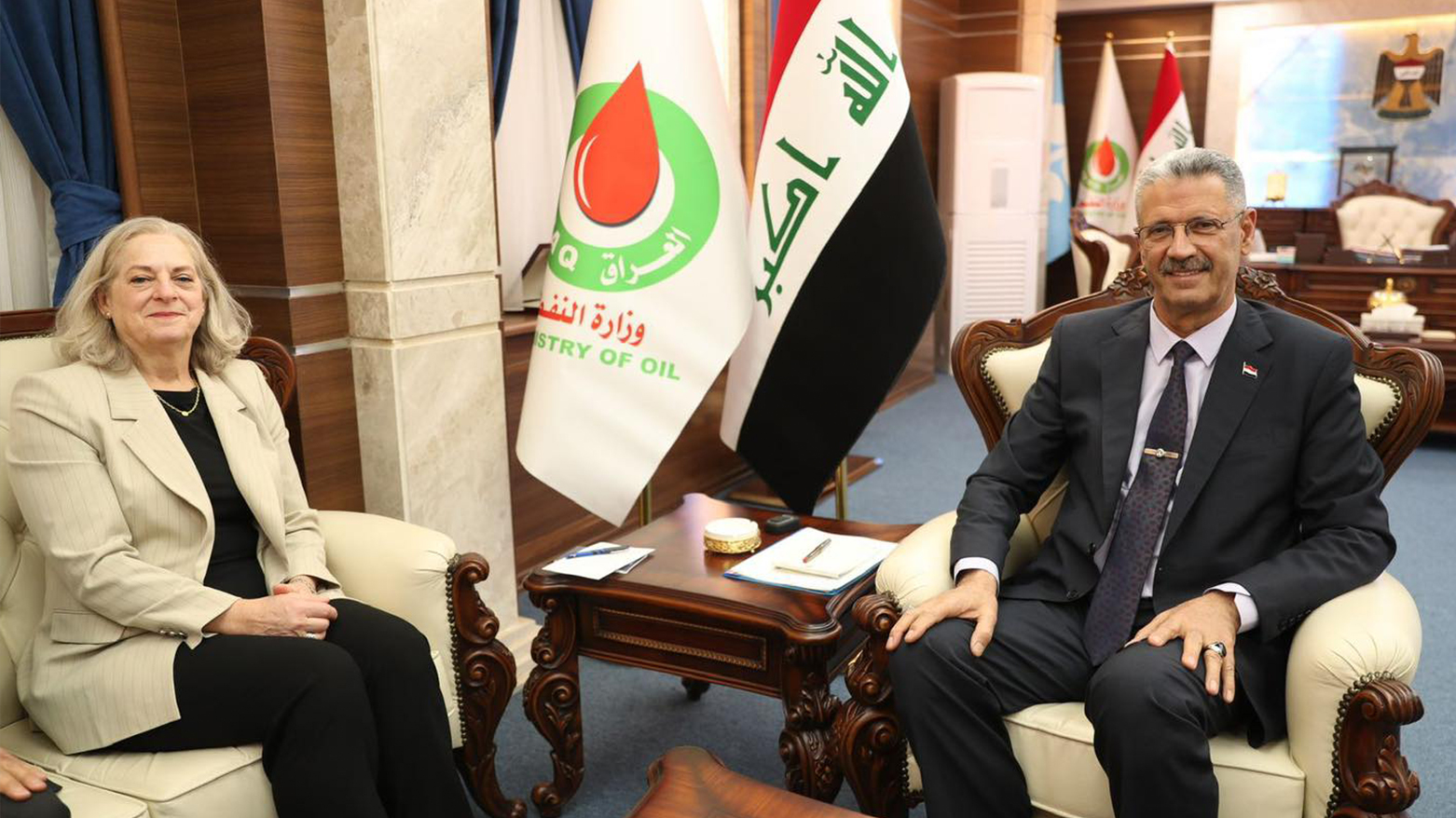US Ambassador Meets Iraqi Oil Minister ahead of Prime Minister’s Visit to Washington
A major item on the U.S. agenda for Sudani's visit will be to secure the resumption of Kurdish oil exports.

WASHINGTON DC, United States (Kurdistan 24) – Iraqi Prime Minister Mohammed Shia’ al-Sudani is to visit Washington on April 15, when he will meet with U.S. President Joe Biden.
Read More: Iraqi Prime Minister to Make First Visit to Washington
It will be the first meeting between the two leaders. Indeed it will be Sudani’s first visit to the U.S. capital, although he did visit New York last September for the opening of the U.N. General Assembly, where he met Secretary of State Antony Blinken.
In that meeting, Blinken “conveyed an invitation from President Biden to the Prime Minister to visit the White House soon,” according to the U.S. read-out.
U.S. Says Baghdad Should Allow Renewed Kurdish Oil Exports
A major item on the U.S. agenda will be to secure the resumption of Kurdish oil exports, which had previously gone to the international market through the pipeline to Ceyhan, Turkey, on the Mediterranean coast.
They were halted a year ago, in March 2023, after Iraq won an international court ruling, saying that Ankara had not properly sought Baghdad’s permission to export Kurdish oil.
A year later, that pipeline remains closed. With the announcement of Sudani’s visit, the oil companies operating in the Kurdistan Region, which have formed The Association of the Petroleum Industry of Kurdistan (APIKUR), called on the U.S. Congress in late January to help “persuade the Federal Government of Iraq (GOI) to promptly resolve issues that have resulted in the halt of greater than 400,000 barrels a day of crude oil exports from the KRI [Kurdistan Region of Iraq] to global markets.”
Read More: Kurdistan-based oil companies call on U.S. Congress to help resume oil exports
And that, indeed, is an issue that Congress is pressing on the Biden administration.
It is also an issue that the administration is pressing with Baghdad. On Tuesday, the U.S. ambassador to Iraq, Alina Romanowski, met with Iraqi Deputy Prime Minister and Oil Minister, Hayan Abdelghanii.
“In preparation for PM Sudani’s visit to the US @HAbdalghanii @iqministryofoil and I discussed Iraqi energy independence benefiting Iraqis,” she tweeted.
“Leveraging Iraq Kurdistan Region-based oil and gas can help Iraq on its path towards energy autonomy,” her tweet added.
In preparation for PM Sudani’s visit to the US @HAbdalghanii @iqministryofoil and I discussed Iraqi energy independence benefiting Iraqis. Leveraging Iraq Kurdistan Region-based oil and gas can help Iraq on its path towards energy autonomy. #USIraq360Partnership
— Ambassador Alina L. Romanowski (@USAmbIraq) April 2, 2024
Iraq imports electricity from Iran, and the U.S. regularly gives Iraq a sanctions waiver to do so. If Iraq succeeded in gaining energy independence, the entire process would be unnecessary. Thus, the U.S. would decidedly like to see that happen,
Last week, Iraqi Foreign Minister Fuad Hussein visited Washington in preparation for Sudani’s visit. The U.S. officials with whom he met urged an improvement in relations with Erbil, including the renewal of Kurdish oil exports.
Read More: U.S. Encourages Better Ties Between Baghdad and Erbil, including Resumption of KRG Oil Exports
As Blinken and Hussein met, State Department Spokesperson Matthew Miller affirmed, “The U.S. has been engaged at the most senior levels” on this issue, “and we have urged all parties to reach an agreement to resume the flow of oil through this pipeline.”
“We believe that restarting oil exports through the pipeline would be mutually beneficial to all parties,” Miller continued, “and because of that reason, that’s why we’ll continue to pursue it.”
Thus, the U.S. position is clear. What remains to be seen is how effective Wasington will be in securing Baghdad’s agreement.